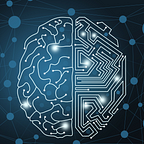THE FUTURE OF AI IN THE HEALTHCARE SECTOR
Introduction
Artificial Intelligence (AI) is being used in the healthcare sector to reduce the cost and accelerate the development of various treatments. More so, it is being utilized to improve healthcare organizations’ quality of care, thus increasing their productivity. AI has greatly improved patient engagement and access to care, among others. As of this time, AI in healthcare is being categorized as clinical-oriented, patient-oriented, and administrative-oriented AI, all depending on how it is assisting in the delivery of healthcare services. The field can still be considered as in an early age of AI implementation. This has prompted every expert to wonder what the future of AI in the healthcare sector will be like.
Future of AI in the healthcare sector
Provision of medical care in developing countries
Most developed countries have already adopted extensive use of AI in the provision of medical care, but the developing countries are behind in this progress. According to AI analysis, there will be increased use of AI in developing countries to solve the challenge of qualified medical staff deficiency. Thus these developing countries are likely to expand on their adaptation of AI in the future to help in delivering some of the medical care, such as diagnostic duties (Bresnick, 2018).
The emergency of predictive care, which will be AI-powered
In the future, it is also expected that there will be AI-powered predictive care which will help in understanding major factors impacting our health. These are the social determinants or factors that lead to increased risks of contracting a certain illness. Predicting social determinants has helped fight few conditions such as heart failure and diabetes, and with the progress of AI in the future, more will be achieved involving even other medical conditions.
The emergency of the networked hospital due to the advancement of AI
According to Kriwet (2020), the future of AI will involve connected care and networked hospitals. This will see healthcare organizations as been more than just a building. They will be continuous digital structures with command centers that are centralized. Today, most healthcare organizations have been bound today by their location and proximity, but in the future AI, advancement and implementation will alter how professionals are bound and connected depending on their experience.
AI will lead to better staff and patient experience in the future.
The future of AI in the health care industry will entail a better experience for both the staff and the patients. Patient experience is essential in determining how they recover, while on the other hand, staff experience is essential in establishing how they relate with the patient. With progress such as predictive healthcare due to the implementation of AI, traditional challenges such as much wait time and staff workflow issue are likely to reduce significantly, thus improving the patient and the staff’s experience. This will improve the health outcome of the patients and the skills and knowledge of the professional staff.
Conclusion
To conclude, AI is still in the early stage, and so far, much has been achieved in the healthcare sector. It is ever one’s expectations that the future of AI in the healthcare sectors will improve especially on the three categories of application which are clinical-oriented, patient-oriented, and administrative services.
Reference
Kriwet, C. (2020). Here are 3 ways AI will change healthcare by 2030. Retrieved 17 February 2021, from https://www.weforum.org/agenda/2020/01/future-of-artificial-intelligence-healthcare-delivery/
Bresnick, J. (2018). Top 12 Ways Artificial Intelligence Will Impact Healthcare. Retrieved 19 February 2021, from https://healthitanalytics.com/news/top-12-ways-artificial-intelligence-will-impact-healthcare
